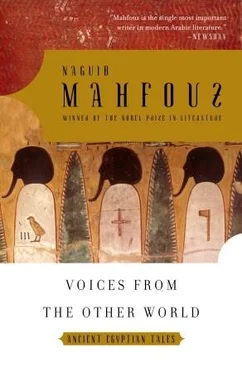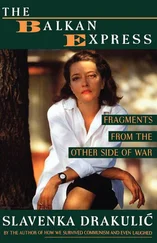“He was a magnificent chief who held Egypt and its subjects in all awe and affection. He spoke to me as a man of power, asking me about my homeland. I told him what I knew, while keeping the truth about myself from him. He offered me marriage to one of his daughters, and I accepted — and began to despair that I would ever again see my homeland. After a short time, I — who was raised on Pharaoh’s famous chariots, and grew up in the wars of Libya and Nubia — was able to conquer all of Tonu’s enemies. From them I took prisoners, their women and goods, their weapons and spoils, and their herds, and my status rose even further. The chief appointed me the head of his armies, making me his expected successor.
“The gravest challenge that I faced was the great thief of the desert, a demonic giant — the very mention of whom frightened the bravest of men. He came to my place seeking to seize my home, my wife, and my wealth. The men, women, and children all rushed to the square to see this most ferocious example of combat between two opponents. I stood against him amid the cheers and apprehension, fighting him for a long time. Dodging a mighty blow from his axe, I launched my piercing arrow and it struck him in the neck. Fatally weakened, he fell to the ground, death rattling in his throat. From that day onward, I was the undisputed lord of the bad-lands.
“Then I succeeded my father-in-law after his death, ruling the tribes by the sword, enforcing the traditions of the desert. And the days, seasons, and years passed by, one after another. My sons grew into strong men who knew nothing but the wilderness as the place for birth, life, glory, and death. Do you not see, my lord, that I suffered in my estrangement from Egypt? That I was tossed back and forth by horrors and anxieties, and was afflicted by calamities, although I also enjoyed love and the siring of children, reaping glory and happiness along the way. But old age and weakness finally caught up with me, and I conceded authority to my sons. Then I went home to my tent to await my passing.
“In my isolation, heartaches assailed me, and anguish overwhelmed me, as I remembered gorgeous Egypt — the fertile playground of my childhood and youth. Desire disturbed me, and longing beckoned my heart. There appeared before my eyes scenes of the Nile and the luxuriant greenery and the heavenly blue sky and the mighty pyramids and the lofty obelisks, and I feared that death would overtake me while I was in a land other than Egypt.
“So I sent a messenger to you, my lord, and my lord chose to pardon me and to receive me hospitably. I do not wish for more than a quiet corner to live out my old age, until Sinuhe’s appointed hour comes round. Then he would be thrown into the embalming tank, and in his sarcophagus, the Book of the Dead — guide to the afterlife — would be laid. The professional women mourners of Egypt would wail over him with their plaintive rhyming cries. . ”
Pharaoh listened to Sinuhe with excitement and delight. Patting his shoulder gently, he said, “Whatever you want is yours.” Then the king summoned one of his chamberlains, who led the prince into his wing of the palace.
Just before evening, a messenger came, saying that it would please the queen if she could meet with him. Immediately, Sinuhe rose to go to her, his aged heart beating hard. Following the messenger, nervous and distracted, he muttered to himself, “O Lord! Is it possible that I will see her once again? Will she really remember me? Will she remember Sinuhe, the young prince and lover?”
He crossed the threshold of her room like a man walking in his sleep. He reached her throne in seconds. Lifting his eyes up to her, he saw the face of his companion, whose youthful bloom the years had withered. Of her former loveliness, only faint traces remained. Bowing to her in reverence, he kissed the hem of her robe. The queen then spoke to him, without concealing her astonishment, “My God, is this truly our Prince Sinuhe?”
The prince smiled without uttering a word. He had not yet recovered himself, when the queen said, “My lord has told me of your conversation. I was impressed by your feats, and the harshness of your struggle, though it took me aback that you had the fortitude to leave your wife and children behind.”
“Mercy upon you, my queen,” Sinuhe replied. “What remains of my life merely lengthens my torture, while the likes of me would find it unbearable to be buried outside of dear Egypt.”
The woman lowered her gaze for a moment, then raising up to him her eyes filled with dreams, she said to him tenderly, “Prince Sinuhe, you have told us your story, but do you know ours? You fled at the time that you learned of Pharaoh’s death. You suspected that your rival, who had the upper hand, would not spare your life. You took off with the wind and traversed the deserts of Amora. Did you not know how your flight would injure yourself and those that you love?”
Confusion showed on Sinuhe’s face, but he did not break his silence. The queen continued, “Yet how could you know that the heir apparent visited me just before your departure at the head of the campaign in Libya. He said to me: ‘Princess, my heart tells me that you have chosen the man that you want. Please answer me truthfully, and I promise you just as truthfully that I will be both contented and loyal. I would never break this vow.’ ”
Her majesty grew quiet. Sinuhe queried her with a sigh, “Were you frank with him, my queen?”
She answered by nodding her head, then her breath grew more agitated. Sinuhe, gasping from the forty-year voyage back to his early manhood, pressed her further.
“And what did you tell him?”
“Will it really interest you to know my answer? After a lapse of forty years? And after your children have grown to be chiefs of the tribes of Tonu?”
His exhausted eyes flashed a look of perplexity, then he said with a tremulous voice, “By the Sacred Lord, it matters to me.”
She was staring at his face with pleasure and concern, and said, smiling, “How strange this is, O Sinuhe! But you shall have what you want. I will not hold back the answer that you should have heard forty years ago. Senwosret questioned me closely, so I told him that I would grant him whatever I had of fondness and friendship. But as for my heart. . ”
The queen halted for a moment, as Sinuhe again looked up, his beard twitching, shock and dismay bursting on his face. Then she resumed, “As for my heart — I am helpless to control it.”
“My Lord,” he muttered.
“Yes, that is what I said to Senwosret. He bid me a moving good-bye — and swore that he would remain your brother so long as he breathed.
“But you were hasty, Sinuhe, and ran off with the wind. You strangled our high hopes, and buried our happiness alive. When the news of your vanishing came to me, I could hardly believe it — I nearly died of grief. Afterward, I lived in seclusion for many long years. Then, at last, life mocked at my sorrows; the love of it freed me from the malaise of pain and despair. I was content with the king as my husband. This is my story, O Sinuhe.”
She gazed into his face to see him drop his eyes in mourning; his fingers shook with emotion. She continued to regard him with compassion and joy, and asked herself: “Could it be that the agony of our long-ago love still toys with this ancient heart, so close to its demise?”
A Voice from the Other World

One
By God, what does this tomb want for the good things of a bygone existence? It is a fragment of life’s essence rich with lusciousness and luxury. Its walls are adorned with scenes of servants and slave girls. It is filled with the most lavish of furniture, the most sublime of embellishments. It has all that one could want of splendid fixtures and fragrances and decorative objects. It has a storehouse stuffed with seeds, fruits, and vegetables, and what my library bore of books filled with wisdom, and what a writer may need from the tools of his trade. It is the world as I knew it. But do my senses now still taste life? Do I still need its distractions? Those who built this house for the dead surely labored in vain. And yet, I cannot deny, however strange it may seem, that I have not lost the urge to write. How amazing! What are these leaves that call to me with their beloved bewitchment? Is there still some part of me from which Death has not obliterated the desires of weakness and passion? Have we, the community of scribblers, been sentenced to suffer for our deeds in both of our lives? In any case, a period of waiting still lies before me, after which I shall begin my journey into eternity. So let me occupy this idle time with the reed pen, for how often has this instrument enhanced my precious hours of leisure.
Читать дальше













